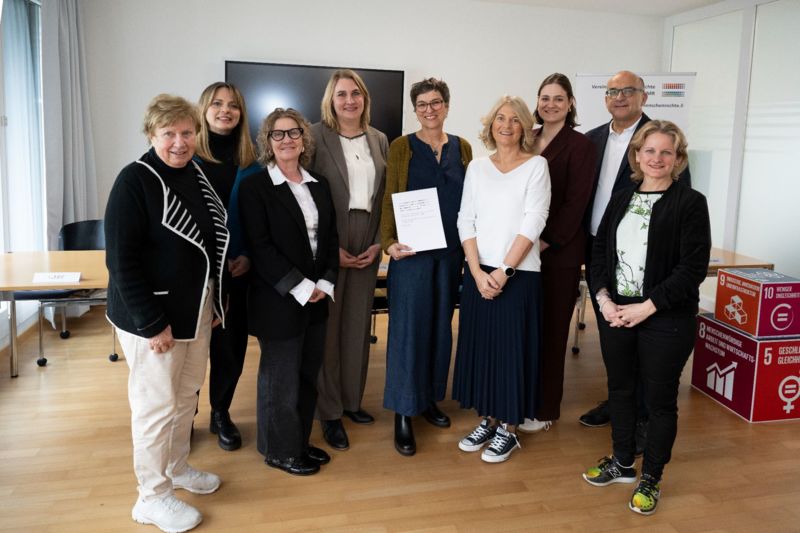Legal and strategic foundations
The Gender Equality Act of March 10, 1999 requires the promotion of equality between women and men and protection against discrimination on the basis of gender in professional life and in access to goods and services. It thus lays down important principles, but by no means covers all social equality issues. For example, the areas of political participation, unpaid care work, gender-sensitive education and protection against multiple discrimination are missing. This is why the Committee under the UN Convention on the Elimination of All Forms of Discrimination against Women (CEDAW) and national advisory organizations and specialist agencies have been recommending the development of a gender equality strategy for years.

Figure: In the shadow report to the Committee of Experts of the UN Convention on the Status of Women, 11 NGOs called for concrete improvements in gender equality policy - including a national gender equality strategy. Photo: Nils Vollmar
In the reporting year, the draft for the first national gender equality strategy was developed with the involvement of various interest groups, with the aim of advancing gender equality policy systematically, across departments and with clearly measurable goals. In their report to the UN Convention on the Elimination of Discrimination against Women (CEDAW) at the beginning of the year, various civil society organizations called for sufficient human and financial resources to implement gender equality, effective measures to close the pay gap, better political participation of women and sustainable prevention and protection systems against violence against women. The consultation on the strategy will take place in spring 2025. Implementation is planned for 2026.
In addition to the sixth country report under the UN Convention on the Elimination of All Forms of Discrimination against Women (CEDAW), the OCR and 11 non-governmental organizations submitted a shadow report on the UN Convention on the Elimination of All Forms of Discrimination against Women (CEDAW) at the end of 2024. The CEDAW is the central instrument for promoting gender equality in Liechtenstein and obliges the state to implement effective gender equality policies, such as measures to combat wage inequality, strengthen the political representation of women and protect against gender-based violence. A national gender equality strategy with sufficient human and financial resources was also part of the demands in the CEDAW Shadow Report_2024.
